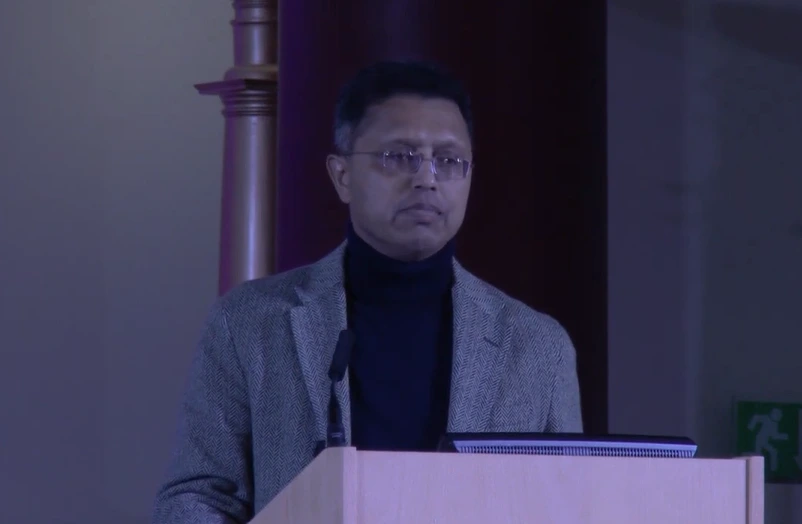Explore the academic journey and groundbreaking contributions of Masud Husain, Professor of Neurology & Cognitive Neuroscience and Editor-in-Chief of Brain, bridging cognitive science and clinical neurology.
Masud Husain, a Bangladeshi-born clinical neurologist and neuroscientist, holds a prestigious position as Professor of Neurology & Cognitive Neuroscience at the University of Oxford. As Editor-in-Chief of the renowned journal Brain, Husain has propelled forward our understanding of attention, working memory, motivation, and their disruptions in dementia and Parkinson’s disease.
🎓 Academic Background
- Early Life: Born in East Pakistan (now Bangladesh) and educated at King Edward VI Camp Hill School for Boys in Birmingham. During a webinar organized by the World Federation of Neurology on World Brain Day 2021, Professor Husain revealed that his parents arrived in London in the 1960s from East Pakistan.
- Oxford Education: Completed a BMBCh in Medicine and a DPhil in Physiological Sciences (1987) at New College, University of Oxford.
- Postdoctoral Training: Awarded a Harkness Fellowship, he conducted postdoctoral research at MIT in Richard Andersen’s lab before returning to Oxford for clinical neurology training.
🧠 Research Focus & Contributions
Husain’s research seamlessly integrates cognitive theory and clinical insight:
• Working Memory & Attention
- Developed innovative paradigms challenging fixed-capacity theories of visual working memory, instead proposing dynamic resource allocation models (en.wikipedia.org).
- Seminal papers: Dynamic Shifts of Limited Working Memory Resources in Human Vision (Science, 2008); Changing Concepts of Working Memory (Nature Neuroscience, 2014).
• Motivation & Apathy in Neurological Disorders
- Introduced a transdiagnostic framework for understanding apathy and anhedonia across disorders (ndcn.ox.ac.uk).
- Published in Nature Reviews Neuroscience (2018), bridging lab findings with patient care.
• Dementia & Neurodegeneration
- As Co-lead of Oxford’s Dementia Research theme (NIHR BRC), he investigates motivational and cognitive decline across vascular dementia, Alzheimer’s, Parkinson’s, and stroke (ndcn.ox.ac.uk).
🏅 Awards & Honors
- Fellow, Academy of Medical Sciences (FMedSci, 2008)
- Fellow, American Academy of Neurology and European Academy of Neurology (2018)
- Wellcome Trust Senior Fellowship, followed by Principal Fellowship (2012–2023)
- Graham Bull Prize (Royal College of Physicians, 2006); Elizabeth Warrington Prize (British Neuropsychological Society, 2006); EAN Investigator Award (2016) (en.wikipedia.org).
🌎 Leadership & Editorial Roles
- Co-Lead, Dementia Theme, Oxford NIHR Biomedical Research Centre
- Professorial Fellow at New College, Oxford
- Editor-in-Chief, Brain — a top-ranked neurology journal
- Prominent voice in academic discourse, including a notable 2025 editorial critiquing scholarly bureaucracy (en.wikipedia.org).
📈 Impact & Future Directions
Masud Husain’s body of work has reshaped cognitive neuroscience and neurology by:
- Developing sensitive cognitive metrics for clinical populations
- Linking mechanistic insights with real-world patient outcomes
- Influencing policy and practice through multidisciplinary leadership and editorial guidance
Continued efforts focus on multi-modal interventions that address memory, motivation, and quality of life in neurodegenerative and acute neurological conditions.
Follow JSTOR ONLINE
